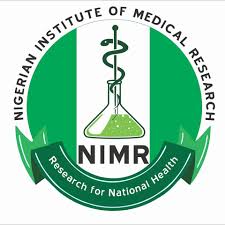The National Institute of Allergy and Infectious Diseases is one of the 27 institutes and centers that make up the National Institutes of Health (NIH), an agency of the United States Department of Health and Human Services (HHS). NIAID's mission is to conduct basic and applied research to better understand, treat, and prevent infectious, immunologic, and allergic diseases.

Tropical medicine is an interdisciplinary branch of medicine that deals with health issues that occur uniquely, are more widespread, or are more difficult to control in tropical and subtropical regions.

The United States President's Emergency Plan For AIDS Relief (PEPFAR) is a United States governmental initiative to address the global HIV/AIDS epidemic and help save the lives of those suffering from the disease. Launched by U.S. President George W. Bush in 2003, as of May 2020, PEPFAR has provided about $90 billion in cumulative funding for HIV/AIDS treatment, prevention, and research since its inception, making it the largest global health program focused on a single disease in history until the COVID-19 pandemic. PEPFAR is implemented by a combination of U.S. government agencies in over 50 countries and overseen by the Global AIDS Coordinator at the U.S. Department of State. As of 2021, PEPFAR has saved over 20 million lives, primarily in Sub-Saharan Africa.
The University of Maryland School of Medicine, located in Baltimore City, Maryland, U.S., is the medical school of the University of Maryland, Baltimore and is affiliated with the University of Maryland Medical Center and Medical System. Established in 1807 as the College of Medicine of Maryland, it is the first public and the fifth oldest medical school in the United States. UMB SOM's campus includes Davidge Hall, which was built in 1812, and is the oldest building in continuous use for medical education in the Northern Hemisphere.

The Global Fund to Fight AIDS, Tuberculosis and Malaria is an international financing and partnership organization that aims to "attract, leverage and invest additional resources to end the epidemics of HIV/AIDS, tuberculosis and malaria to support attainment of the Sustainable Development Goals established by the United Nations". This multistakeholder international organization maintains its secretariat in Geneva, Switzerland. The organization began operations in January 2002. Microsoft founder Bill Gates was one of the first donors to provide seed money for the partnership. From January 2006 it has benefited from certain US Privileges, Exemptions, and Immunities under executive order 13395, which conferred International Organizations Immunities Act status on it.
FHI 360 is a nonprofit human development organization based in North Carolina. FHI 360 operates in more than 70 countries and all U.S. states and territories. Established in 1971, the organization manages projects relating to family planning and reproductive health. In 1986 the organization began a worldwide response to HIV/AIDS. FHI 360's research and programs also address malaria, tuberculosis, and other infectious and chronic diseases and international agencies, governments, foundations, research institutions, and individual donors.

PATH is an international, nonprofit global health organization based in Seattle, with 1,600 employees in more than 70 countries around the world. Its president and CEO is Nikolaj Gilbert, who is also the Managing Director and CEO of Foundations for Appropriate Technologies in Health (FATH), PATH's Swiss subsidiary. PATH focuses on six platforms: vaccines, drugs, diagnostics, devices, system, and service innovations.

The Nigerian Institute of Medical Research (NIMR) in Yaba, Lagos state, Nigeria is a medical research institute established by the Federal Government of Nigeria through the research institute establishment act of 1977, to promote National health and developments. Until the establishment of National Institute for Pharmaceutical Research and Development (NIPRID) in Abuja, it was the only institute in the country specifically dedicated for medical research.

The United States established diplomatic relations with Malawi in 1964 after Malawi gained independence from the United Kingdom. Malawi's transition from a one-party state to a multi-party democracy significantly strengthened the already cordial U.S. relationship with Malawi. Significant numbers of Malawians study in the United States. The United States has an active Peace Corps program, Centers for Disease Control and Prevention, Department of Health and Human Servicess, and an Agency for International Development (USAID) mission in Malawi. Both countries have a common history and English language, as they were part of the British Empire.

Life expectancy has risen by two years for males and females in Vietnam between 2000 and 2012. This is half of the average rise in life expectancy for other parts of the world during the same time period.
The Demographic and Health Surveys (DHS) Program is responsible for collecting and disseminating accurate, nationally representative data on health and population in developing countries. The project is implemented by ICF International and is funded by the United States Agency for International Development (USAID) with contributions from other donors such as UNICEF, UNFPA, WHO, and UNAIDS.

HIV/AIDS in Lesotho constitutes a very serious threat to Basotho and to Lesotho's economic development. Since its initial detection in 1986, HIV/AIDS has spread at alarming rates in Lesotho. In 2000, King Letsie III declared HIV/AIDS a natural disaster. According to the Joint United Nations Programme on HIV/AIDS (UNAIDS) in 2016, Lesotho's adult prevalence rate of 25% is the second highest in the world, following Eswatini.
With less than 0.1 percent of the population estimated to be HIV-positive, Bangladesh is a low HIV-prevalence country.

Robert Ray Redfield Jr. is an American virologist who served as the director of the Centers for Disease Control and Prevention and the administrator of the Agency for Toxic Substances and Disease Registry from 2018 to 2021.

The Vaccine Research Center (VRC), is an intramural division of the National Institute of Allergy and Infectious Diseases (NIAID), part of the National Institutes of Health (NIH), US Department of Health and Human Services (HHS). The mission of the VRC is to discover and develop both vaccines and antibody-based products that target infectious diseases.
The American Society of Tropical Medicine and Hygiene (ASTMH) is an Arlington, Virginia-based non-profit organization of scientists, clinicians, students and program professionals whose longstanding mission is to promote global health through the prevention and control of infectious and other diseases that disproportionately afflict the global poor. ASTMH members work in areas of research, health care and education that encompass laboratory science, international field studies, clinical care and country-wide programs of disease control. The current organization was formed in 1951 with the amalgamation of the American Society of Tropical Medicine, founded in 1903, and the National Malaria Society, founded in 1941.
Global Health Initiatives (GHIs) are humanitarian initiatives that raise and disburse additional funds for infectious diseases – such as AIDS, tuberculosis, and malaria – for immunizations and for strengthening health systems in developing countries. GHIs classify a type of global initiative, which is defined as an organized effort integrating the involvement of organizations, individuals, and stakeholders around the world to address a global issue.

Michel Kazatchkine is a French physician, diplomat and advocate who is best known for his work in international AIDS treatment issues. From February 2007 to March 2012 he was director of The Global Fund to Fight AIDS, Tuberculosis and Malaria. On July 20, 2012, UN Secretary-General Ban Ki-moon appointed him as his United Nations Special Envoy for HIV/AIDS in Eastern Europe and Central Asia.
The Johns Hopkins Center for Communication Programs (CCP) was founded over 30 years ago by Phyllis Tilson Piotrow as a part the Johns Hopkins Bloomberg School of Public Health's department of Health, Behavior, and Society and is located in Baltimore, Maryland, United States.
Alash'le Grace Abimiku is a Nigerian executive director of the International Research Centre of Excellence at the Institute of Human Virology Nigeria and a Professor of Virology at the University of Maryland School of Medicine.










